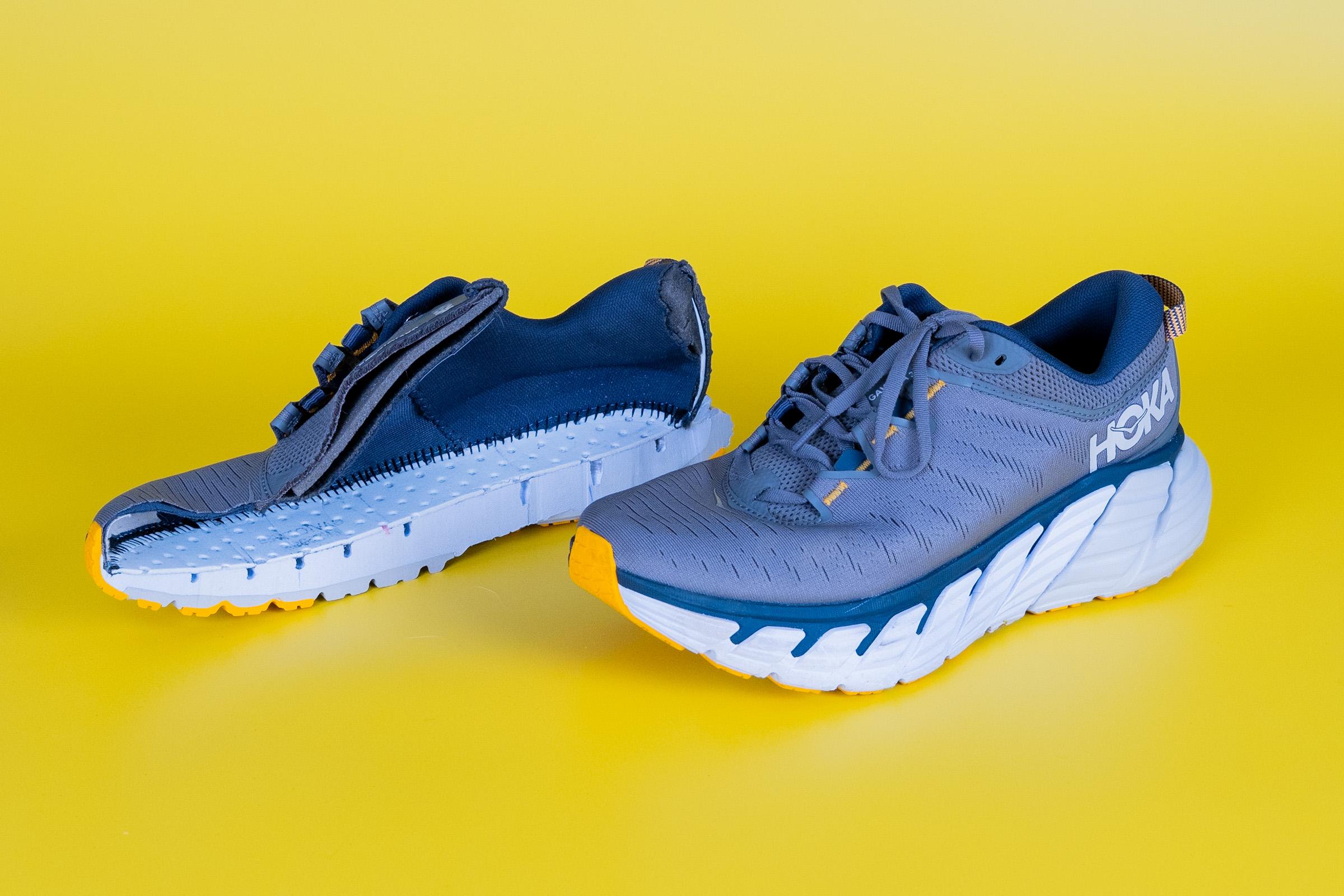Our verdict
Pros
- Cushioned for heavier runners
- Tuned for overpronators
- Super stable, wide platform
- Extremely durable
- Plush, padded upper
- Roomy toebox
Cons
- A bit too stiff
- Heavy
- Tongue bunches up
Audience verdict
Comparison
The most similar running shoes compared
+ + Add a shoe | |||||
|---|---|---|---|---|---|
| Audience score | 87 Great! | 80 Good! | 88 Great! | 83 Good! | |
| Price | £160 | £110 | £160 | £150 | |
| Pace | Daily running | Daily running | Daily running | Daily running | |
| Shock absorption | - | High | - | Moderate | |
| Energy return | - | Moderate | - | Low | |
| Traction | - | High | - | High | |
| Arch support | Stability | Stability | Stability | Stability | |
| Weight lab Weight brand | 11.2 oz / 318g 11.3 oz / 320g | 8.1 oz / 231g 8 oz / 228g | 11.6 oz / 329g 11.8 oz / 334g | 10.5 oz / 299g 10.9 oz / 310g | |
| Lightweight | ✗ | ✓ | ✗ | ✗ | |
| Drop lab Drop brand | 9.6 mm 5.0 mm | 9.4 mm 5.0 mm | 7.2 mm 8.0 mm | 2.2 mm 6.0 mm | |
| Strike pattern | HeelMid/forefoot | HeelMid/forefoot | HeelMid/forefoot | Mid/forefoot | |
| Size | True to size | Slightly small | Slightly small | True to size | |
| Midsole softness | - | Soft | Balanced | Soft | |
| Difference in midsole softness in cold | - | Big | Normal | Big | |
| Toebox durability | - | Bad | Decent | Decent | |
| Heel padding durability | - | Decent | Bad | Bad | |
| Outsole durability | - | Bad | Good | Good | |
| Breathability | - | Breathable | Moderate | Breathable | |
| Width / fit | Narrow | Narrow | Medium | Wide | |
| Toebox width | - | Narrow | Wide | Wide | |
| Stiffness | - | Moderate | Stiff | Stiff | |
| Torsional rigidity | Moderate | Stiff | Stiff | Stiff | |
| Heel counter stiffness | - | Stiff | Stiff | Moderate | |
| Rocker | ✗ | ✓ | ✗ | ✗ | |
| Heel lab Heel brand | 39.4 mm 40.0 mm | 36.0 mm 33.0 mm | 39.1 mm 41.0 mm | 34.9 mm 36.0 mm | |
| Forefoot lab Forefoot brand | 29.8 mm 35.0 mm | 26.6 mm 28.0 mm | 31.9 mm 33.0 mm | 32.7 mm 30.0 mm | |
| Widths available | Normal | NormalWide | NormalWide | NormalWide | |
| Orthotic friendly | ✓ | ✓ | ✓ | ✓ | |
| Season | - | SummerAll seasons | All seasons | SummerAll seasons | |
| Removable insole | ✓ | ✓ | ✓ | ✓ | |
| Ranking | #326 Top 48% | #319 Bottom 16% | #140 Top 37% | #265 Bottom 30% | |
| Popularity | #553 Bottom 19% | #56 Top 15% | #301 Bottom 21% | #19 Top 5% |
Size and fit
Size
Hoka Gaviota 3 fits true to size (18 votes).
Hoka Gaviota 3 review and lab test
The Bondi for pronators!
The Hoka Gaviota 3 is a plush, heavily cushioned stability shoe seemingly that satisfies foam lovers whose social standing is directly correlated to stack height.
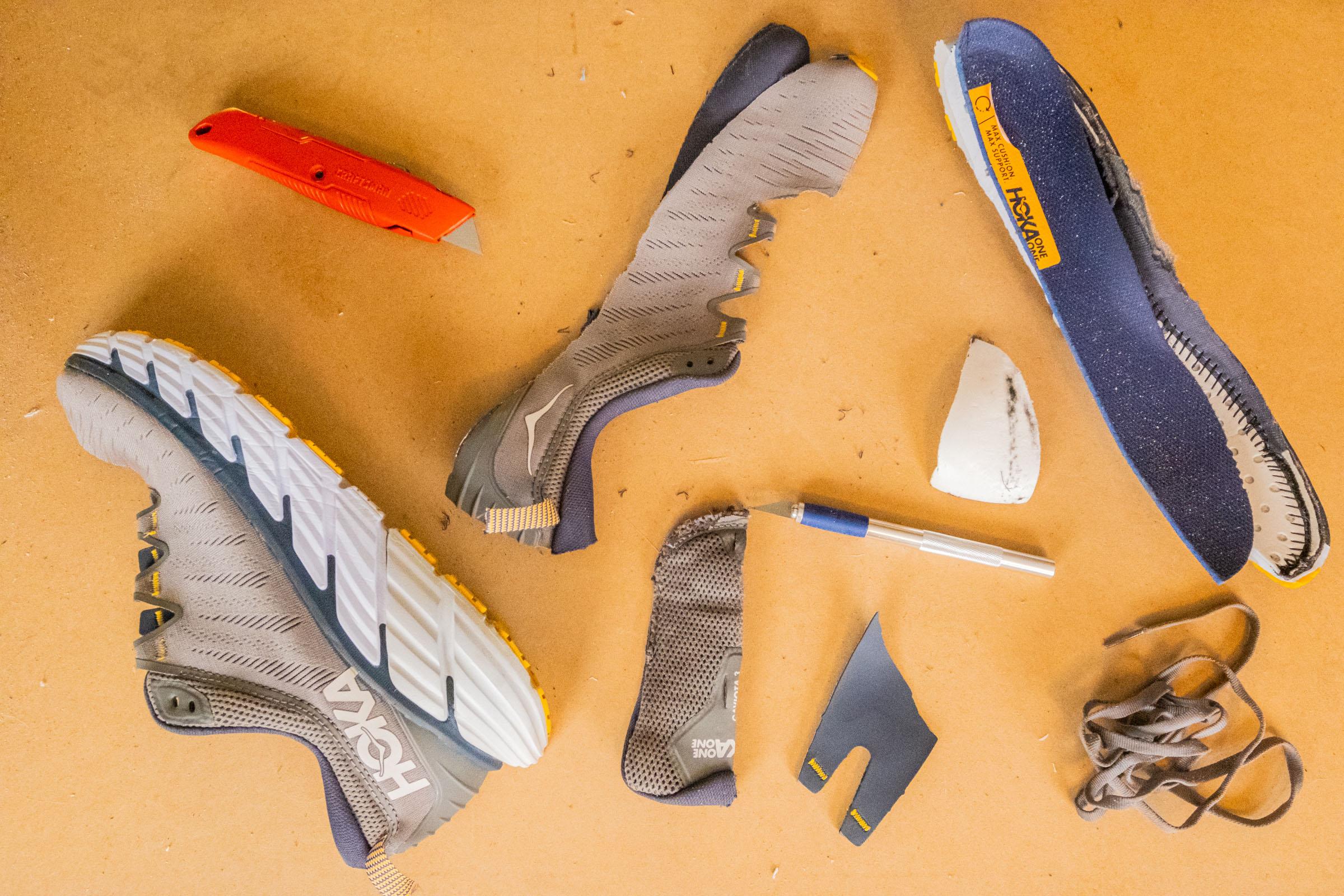
Think Hoka Bondi 7 with extra support.
Who the shoe is (not) for
The Gaviota 3 is ideal for the heavier runner that needs a stability shoe (for overpronation).
Don’t buy this shoe if:
- your feet are really narrow. Check out the Adrenaline GTS 23, which is available in narrow.
- you’re expecting this plush trainer to be soft and bouncy. It’s stiff for lighter runners. I suggest considering the Hoka Arahi 5 instead.
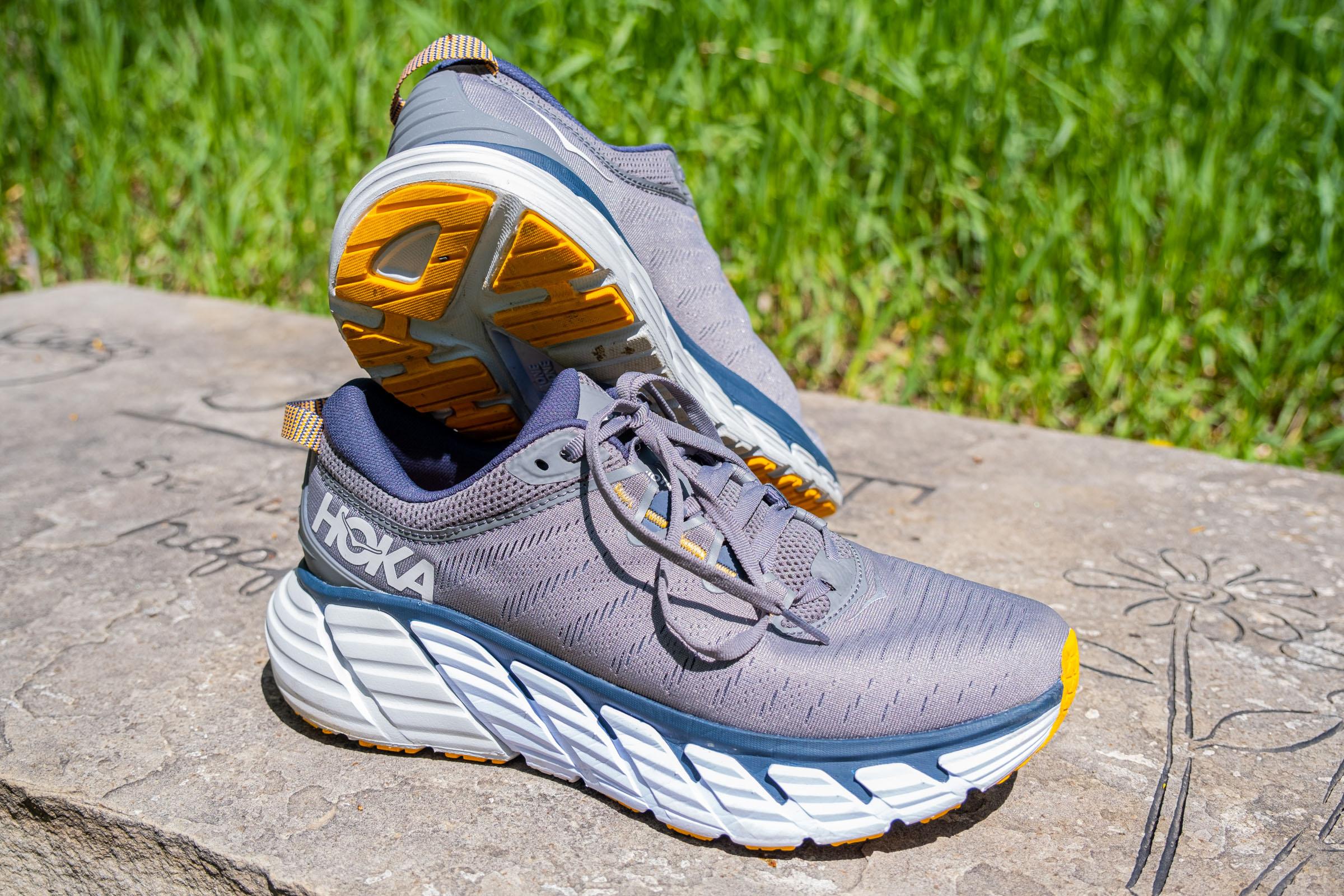
Good fit with 2 annoyances
The Gaviota 3 is a high-volume shoe with plenty of room for wider feet.
I liked how the shoe felt on my foot, but I did have some issues that annoyed me.
- The tongue is gusseted but it’s fixed thanks to a sewn seam near the top of the tongue, meaning it’s hard to position the tongue or get that satisfying tongue pull. I wish Hoka had done the gussets on this shoe as it does on most of its lines where they stretch and allow the tongue to be positioned a bit.
- The H-Frame upper/lacing system gives this shoe added support and a customised lockdown across the midfoot, but I was just annoyed with it. It’s hard to lace up and to unlace when you want to take the shoe off.
Frustrating lacing system
Heavens forbid you slide the shoe off and then have to unlace it later while it’s off your foot, the lacing system turns into a frustrating game of Cat’s Cradle.
It’s a small gripe to complain about but if these were in my rotation I’d find myself not wanting to wear them because of this specific issue.
Gaviota 3 is too plushy and too padded
These shoes are insanely plush, to the point of discontent. Sure, they hug your foot nicely and have plenty of foam everywhere, but they seem a bit hot and overly padded in areas.
The tongue is 10.3mm thick, almost double the average of 5.8mm.
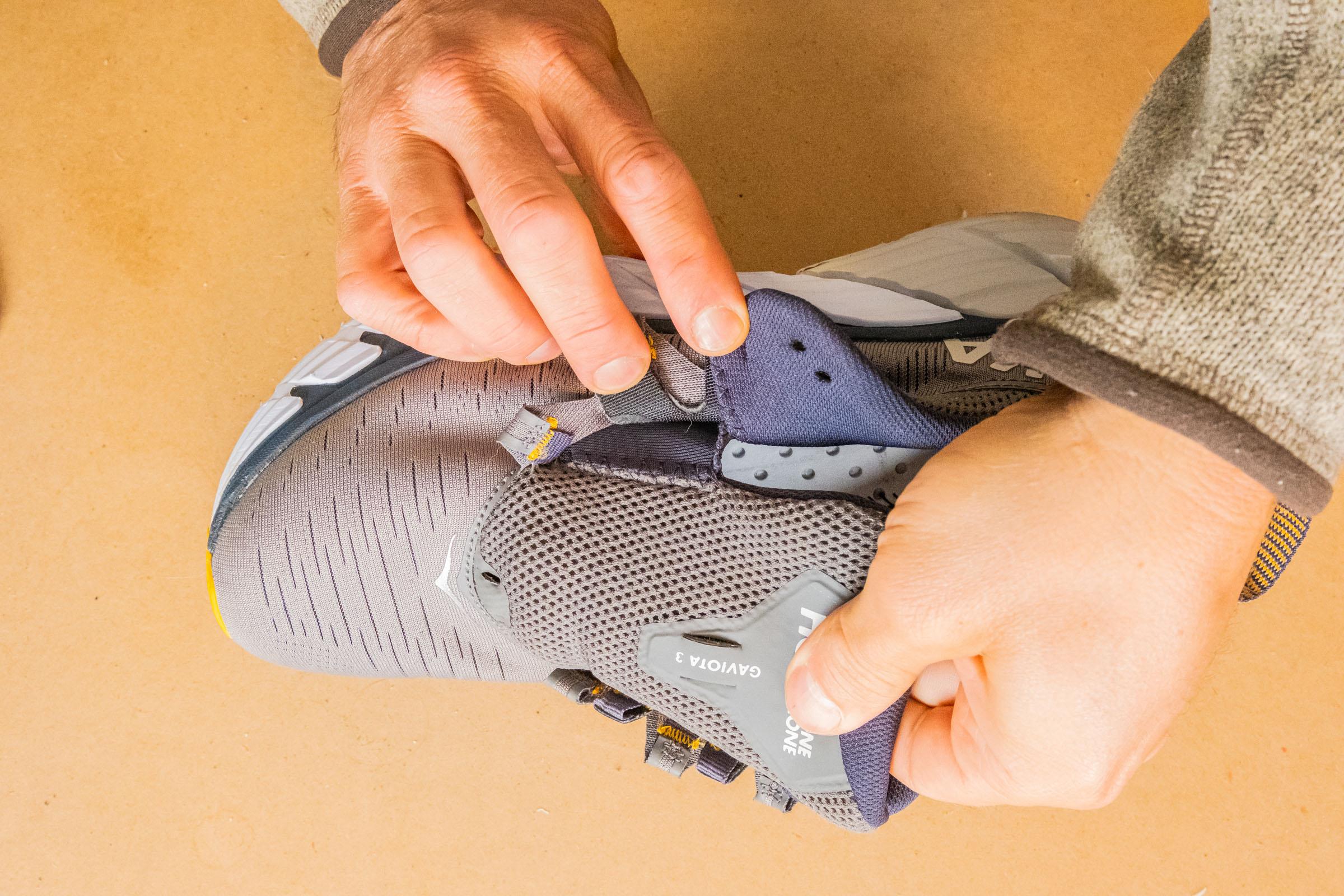
If you want ankle padding, you get it in spades in the Gaviota 3. At 12.7, 13.9, and 18.6mm (front, middle, rear) it's the most padded shoe we’ve tested, where the average measures 8.0, 11.2, and 10.5mm.
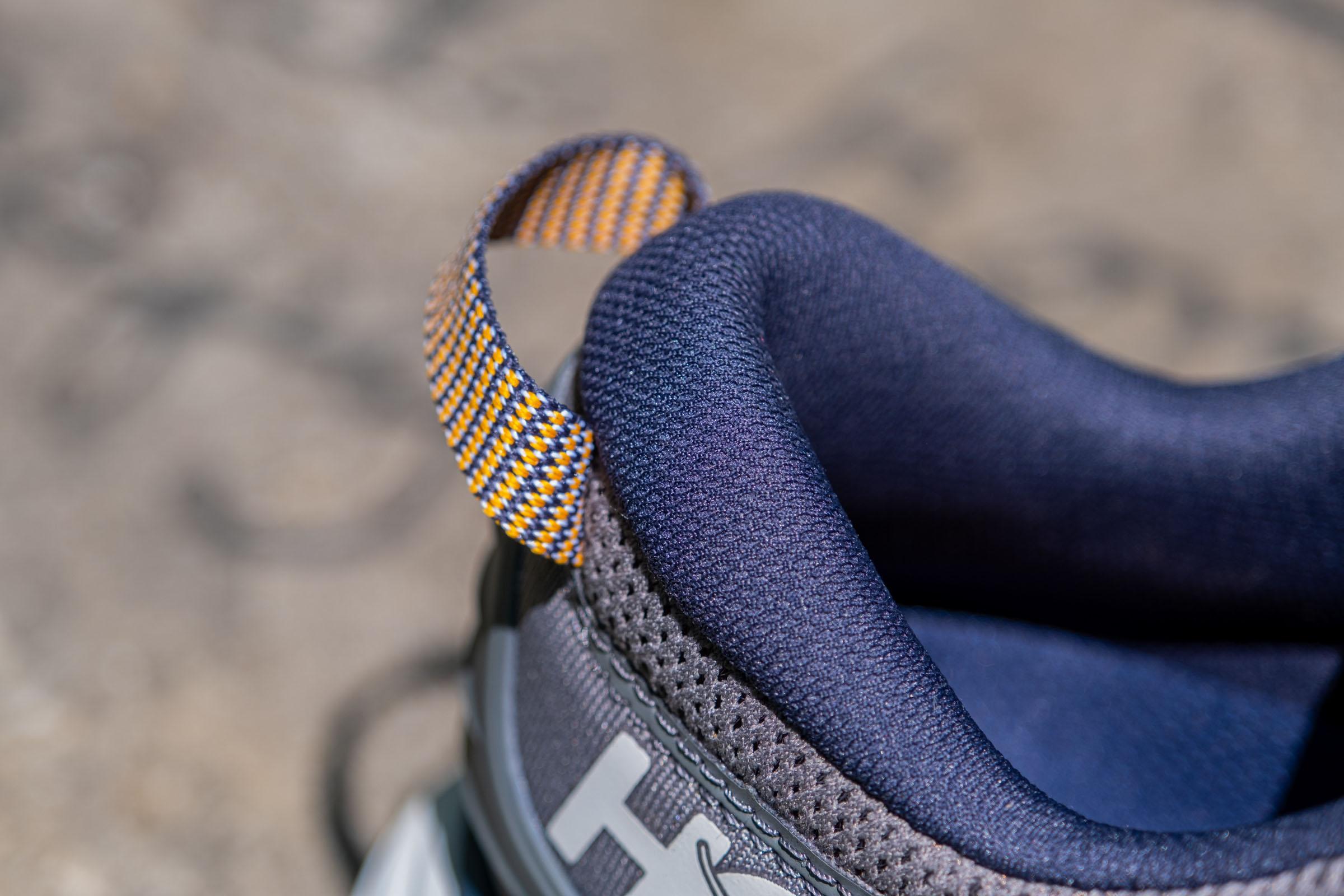
I personally don’t think anyone needs this much foam around the ankle, it just adds warmth and weight to the shoe.
Tongue bunches up
The excessive thickness of the tongue leads to a significant bulge in the lower area.
Normally you can just tug on the tongue when this happens, but it’s locked in place and this bulge wouldn’t flatten out for me.
Ride on Gaviota 3 is too stiff
If you’ve seen my review of the Hoka Bondi 7, you’ll know I wasn’t in love with it’s “max cushioning” ride. It felt stiff and heavy to me and I preferred the Clifton 7 in the comfort and ride department.
The Gaviota 3 feels the same to me, it’s a bit too stiff for me to really take advantage of the 39.4mm of heel foam under foot. For lighter runners that want a Hoka stability shoe, I’d suggest checking out the Arahi 5, as it’s more in line with the Clifton than the Bondi.
Hoka Gaviota 3 is a stability shoe
In terms of stability, Hoka did this on multiple fronts:
- J frame construction,
- Stiff heel counter,
- Wide base.
Hoka uses a J-frame construction, so no medial post which I like, just some denser foam on the medial edge of the shoe.

I will say I can feel this mostly on the inside edge of my heel, and after a few miles, the pressure on my heel was becoming bothersome.
The shoe also gets some added stability from the insanely stiff heel counter. At 107.9N (compared to the average of 64.1N) there’s no lateral movement in the back of the shoe. Hoka accomplishes this with a 1.9mm plastic heel counter, and a thick, external rubber heel clutch.
The shoe also has an extremely wide base which also helps. At 117.9mm in the forefoot, and 105.2mm in the heel, you literally can’t roll this shoe over. Compare that to the average or 113.5mm up from and just 90.7mm in the heel.
Watch your calves at higher speeds
Gaviota 3 is actually so wide in the heel I found it tending to hit my calves as I tried to pick up the pace on my treadmill tests, that’s a first!
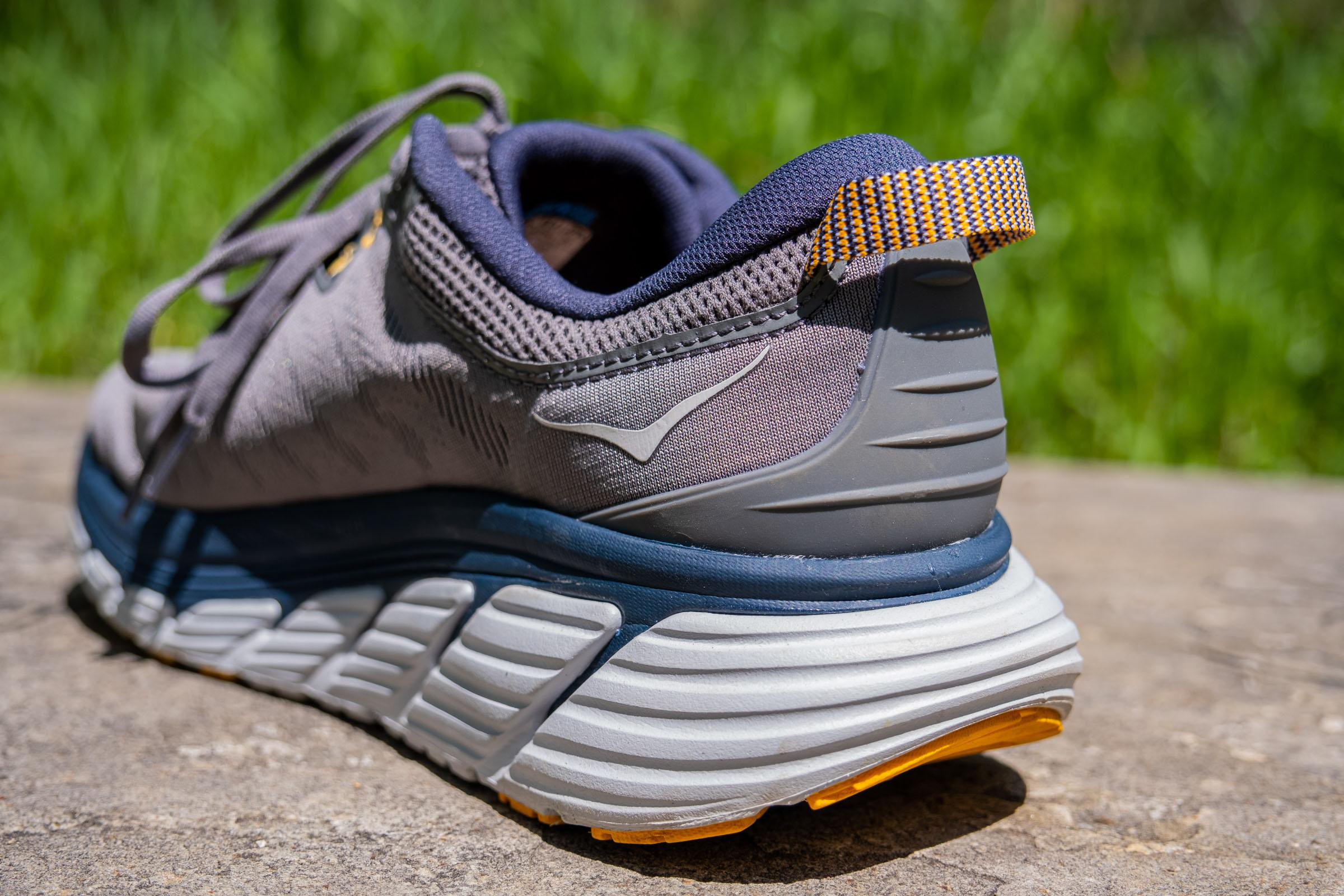
Heel drop 2x higher than advertised
Hoka claims this is a 5mm drop shoe, but it feels heel heavy.
Measured in our lab, I got 9.6mm of drop.
Heavy and looks even heavier
This is not a lightweight shoe, at 11.2 ounces (318g) it's a bruiser. But for what it is, it’s actually pretty impressive. It has more foam, more padding, and more laces (yes they are extremely long still, a problem the Gaviota 2 had as well) than most shoes would ever need.
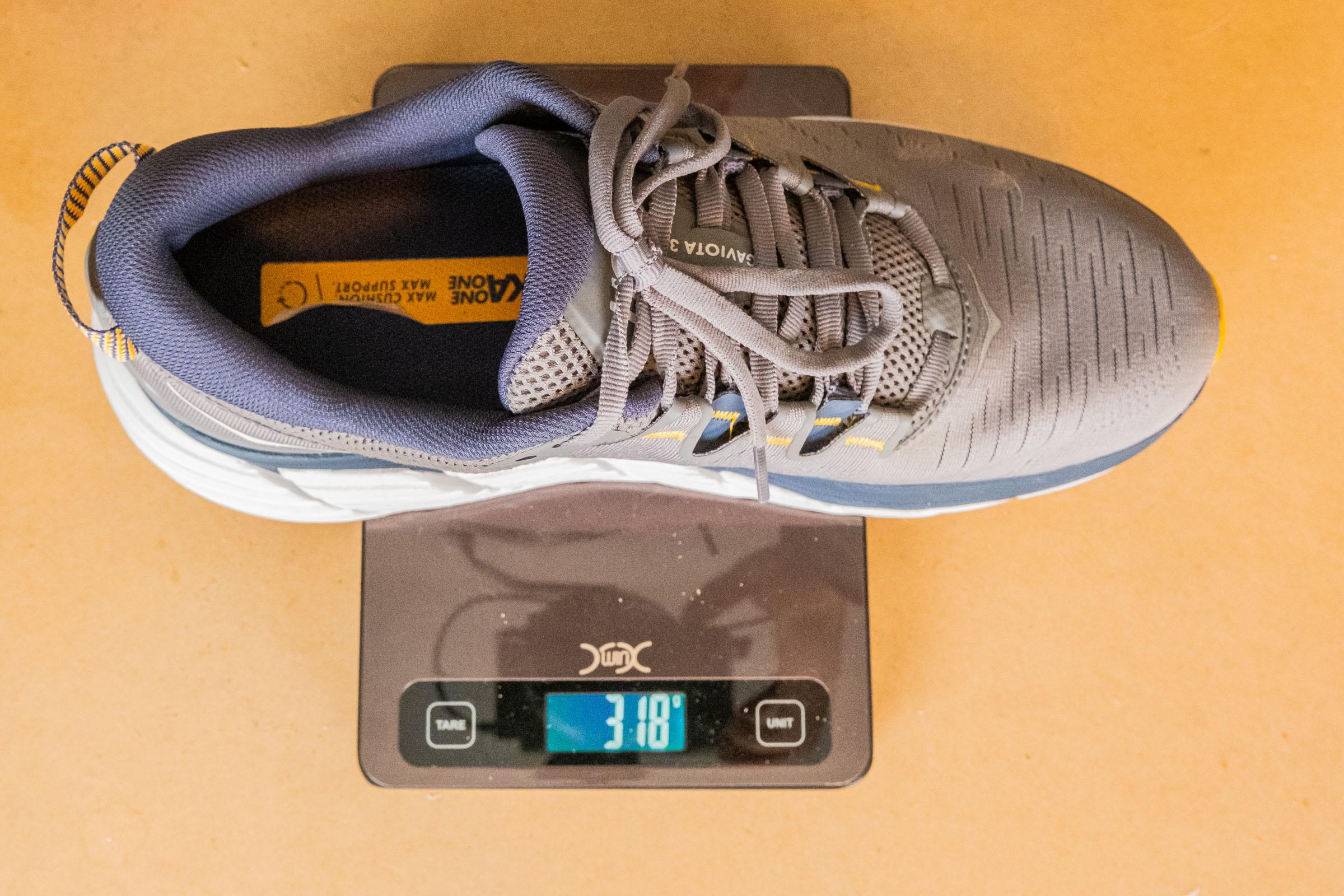
I would have guessed this shoe to weigh in around 13-14 ounces.
Gaviota 3 lasts forever
I assume this shoe will go forever. It’s the shoe you’d want if you lived in the Chernobyl blast radius and you knew you wouldn’t be receiving new shoes in the mail for decades.
- There’s a tonne of stiff foam that will take forever to pack out,
- there’s hard rubber on the outsole, and
- the upper is constructed of two thick layers of fabric.
It’s going to be around for a while.
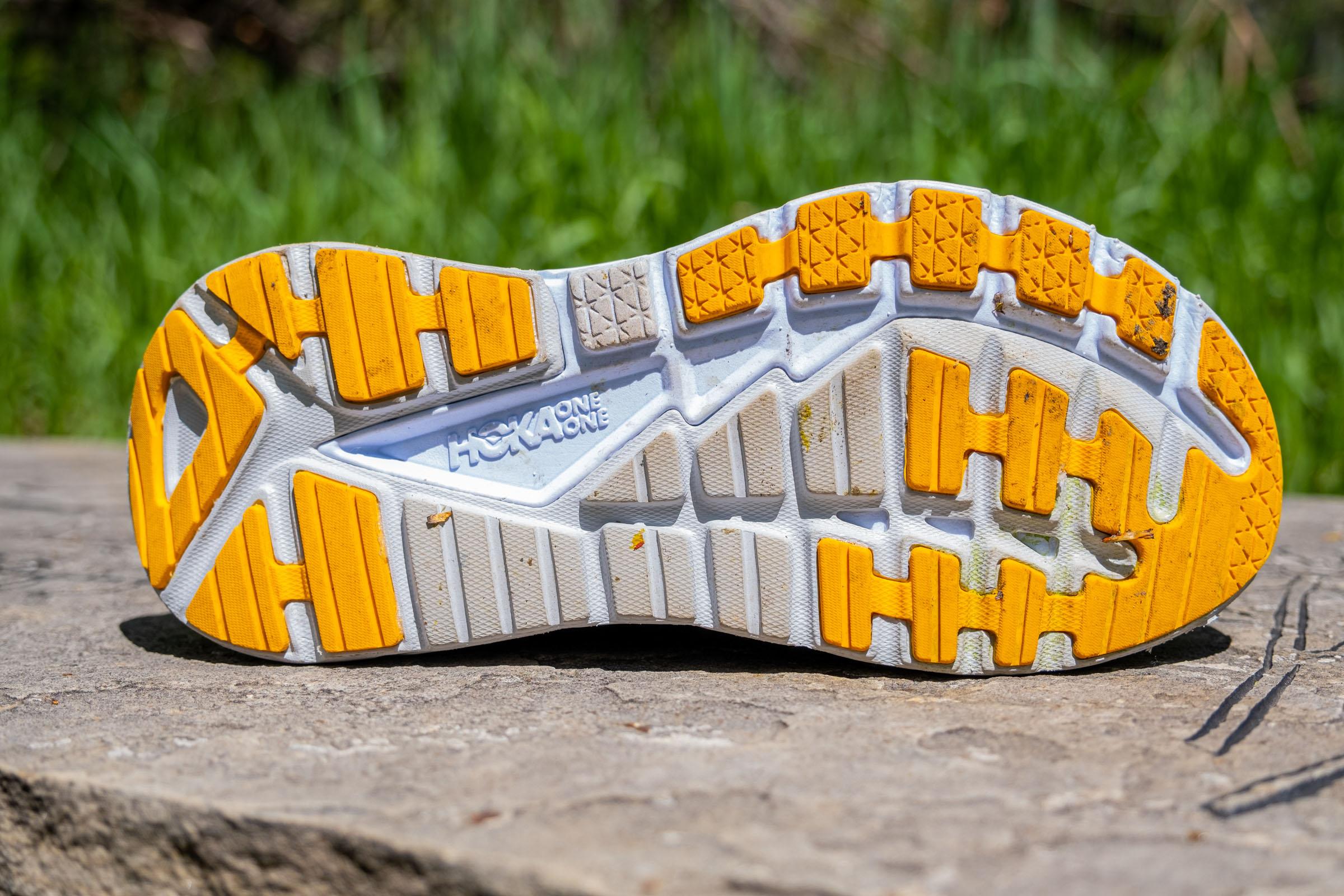
I saw a review of a guy who wore the Gaviota 2 for 1000 miles and the 3 has an additional 2mm of foam underfoot.
Not so breathable
The Gaviota 3 got a new upper which to me felt warm. The 2 was more of a knit mesh and the 3 is a denser engineered polyester.
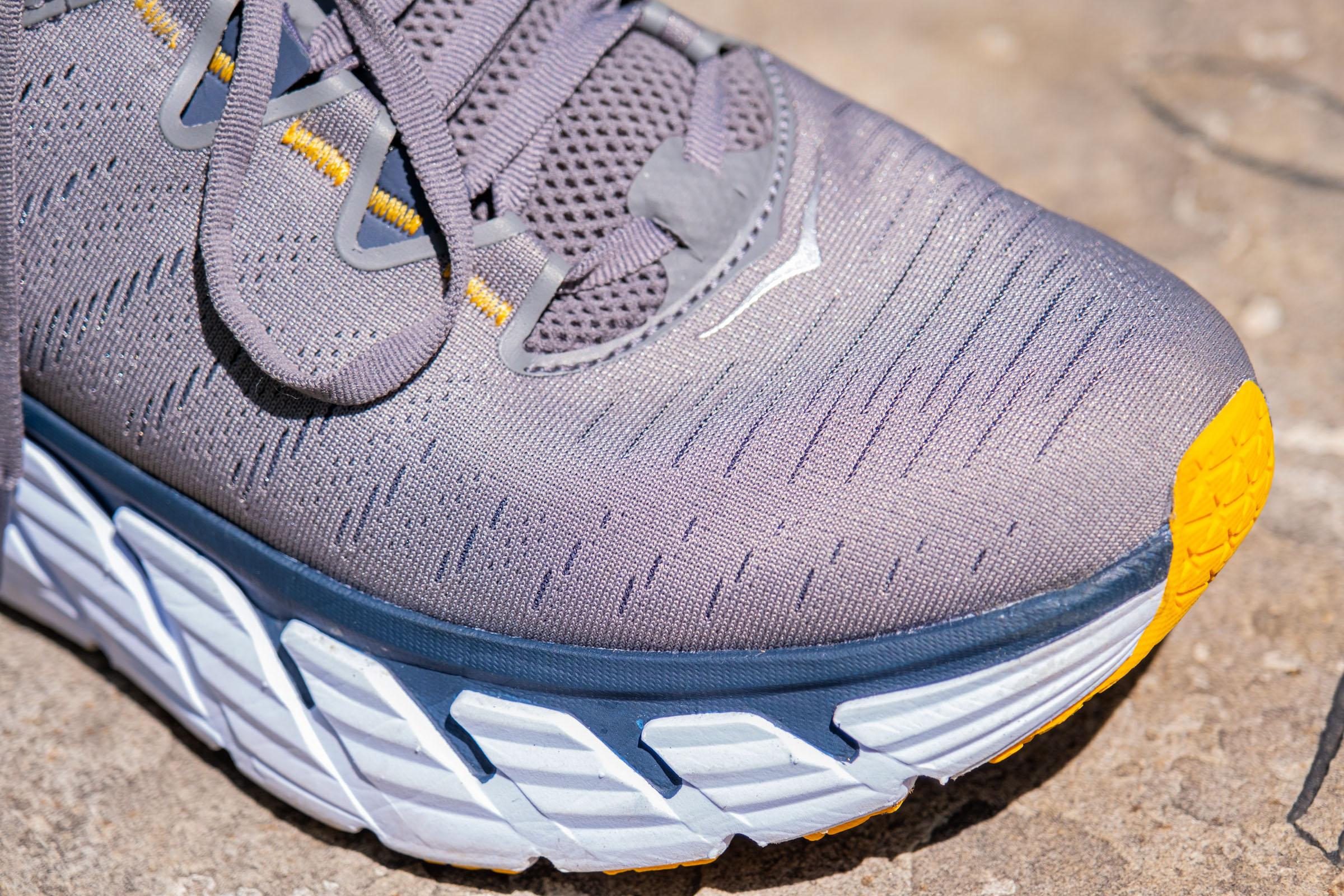
This is a two-layered upper and I think Hoka could have removed the inner layer to lose weight and keep the shoe cooler on warm days.
Hard work needed for a proper lockdown
I mentioned the annoyance I had with the laying system earlier, it’s able to help with lockdown, but you really have to crank on the laces to lock in your heel in the Gaviota 3, and that can be a challenge with how the laces are set up.
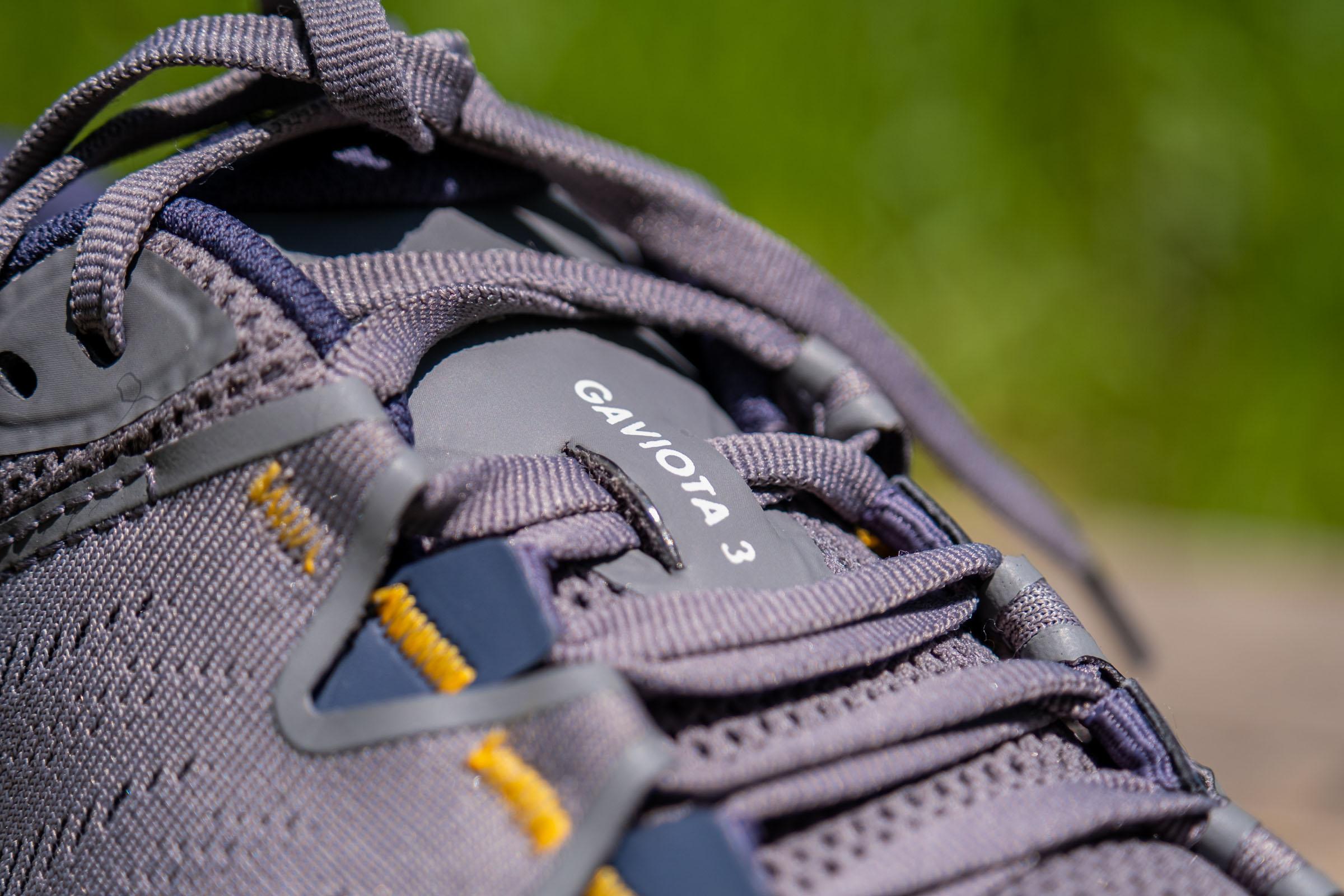
At times it’s hard to get your fingers under the specific part of the lace you want to adjust, which isn't great.
I had to fiddle with these a lot to get my foot to stay put.
Hoka Gaviota 3 was not made for cold days
Like the Bondi, this shoe is not a top performer in cold weather. In our lab tests, the shoe stiffens up 94.1% when cold, compared to the average of just 60.7%.
Conclusion
I’ll end with saying, this shoe could be great for bigger runners that pronate, but for anyone else, I’d steer towards some of Hoka’s other offerings. Also, there are no reflective elements on this shoe, so beware in the evenings if you are an after-work runner.

